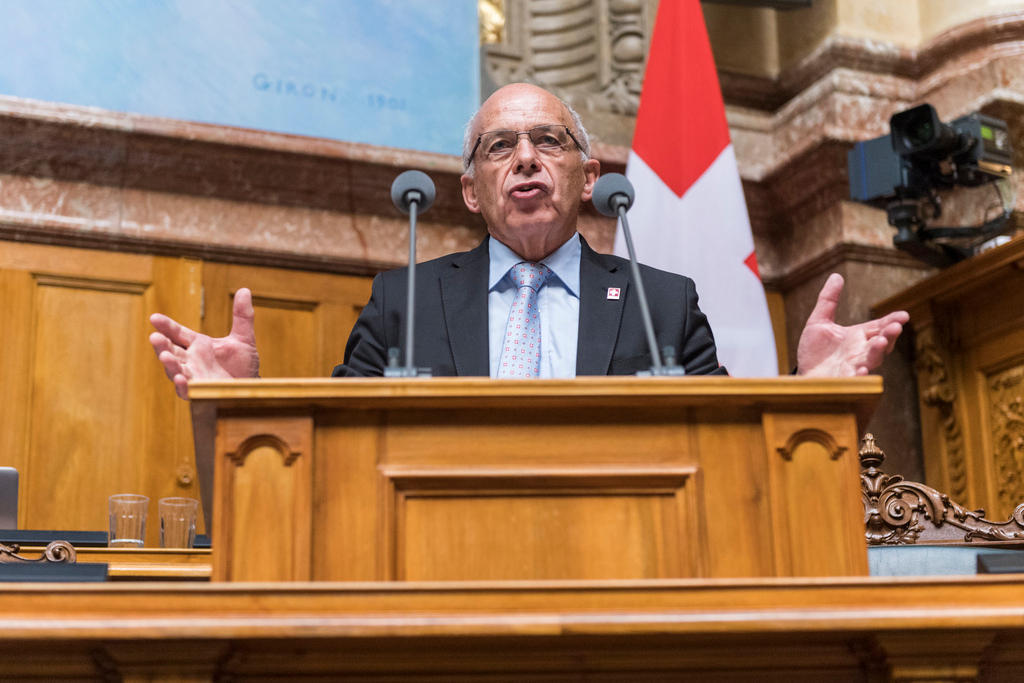
Linking corporate taxation and pensions: a risky compromise

The Swiss Parliament has decided to link corporate tax reform (Tax Project 17) to the financing of old-age insurance. This is an unprecedented political manoeuvre that may not go down well with ordinary citizens.
The debate is closed: Parliament has completed its examination of Tax Project 17 and approved its link with the financing of the old age pensions. We look at what the fuss is all about.
What is Tax Project 17?
Corporate tax reform is one of the most important issues facing the legislature today. Tax Project 17 (TP 17) is a new version of the third corporate tax reform, that was rejected by nearly 60% of voters in a referendum held on February 12, 2017. The objective of TP 17 remains the same: to comply with international requirements by eliminating special tax rebates for foreign companies, while retaining Switzerland’s attractiveness as a low tax destination for all companies. FP 17 is therefore a second attempt at passing the failed tax reform measures by making them more palatable: tax reductions are, for example, retained for patents and research and development, but are offset by an increase in the dividend tax.
Why is TP 17 such a high priority?
Switzerland has undertaken to comply with international company tax standards by the end of 2018. The rules developed by the Organisation for Economic Co-operation and Development (OECD) require, among other things, the abolition of special tax status for foreign companies. Last December, the European Union (EU) placed Switzerland on a grey list of countries that have not yet taken the necessary measures to comply with the new standards. If the parliament does not pass an adaptation of the law, Switzerland could find itself on the black list of jurisdictions considered as non-cooperative by the EU next year.
What exactly is the link between TP17 and pensions?
The parliament decided to introduce social compensation component into TP 17: CHF2 billion will have to be paid into the old age insurance fund. This means that employees’ contributions will increase by 0.15%, as will employers’ contributions. The federal government will also gradually increase its share. Thus the TP 17 package will require the amendment of several laws including the Federal Act on Old Age and Survivors’ Insurance.
All this is because TP 17 will lower corporate taxes resulting in a loss of about CHF2 billion in revenues. Fearing that this would upset the political left and trade unions (and launch a referendum that could lead to rejection) the Federal Council proposed linking the TP 17 to an increase in social benefits. For every franc lost via the corporate tax reform, one franc will be paid into the pension coffers.
What are the risks?
The biggest risk is political. The complex combination of TP 17 and pensions will have to be explained to the people and politicians will have the difficult task of justifying this manoeuvre. In 2017, citizens rejected reforms of both the corporate tax and the pension system. Will they accept a package linking the two in 2019? Injection of CHF2 billion francs will not solve the problem of financing the pension system in the long term (it needs an estimated CHF53 billion by 2030). In addition, the latest version of proposed pension reforms is not yet ready for discussion in parliament.
Will the people vote again on the issue?
Most likely. The Young Greens have already announced their intention to launch a referendum and will probably be followed by some trade unions and left-wing parties. The vote is expected to take place in May 2019.

In compliance with the JTI standards
More: SWI swissinfo.ch certified by the Journalism Trust Initiative





























You can find an overview of ongoing debates with our journalists here . Please join us!
If you want to start a conversation about a topic raised in this article or want to report factual errors, email us at english@swissinfo.ch.